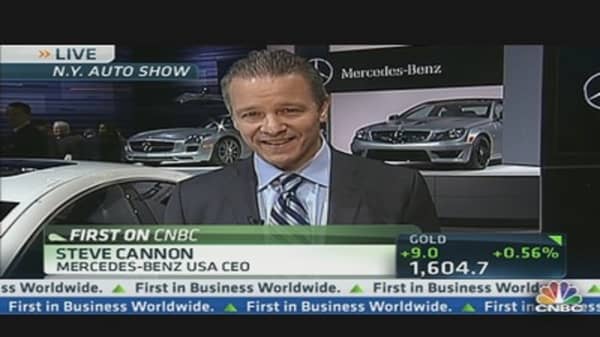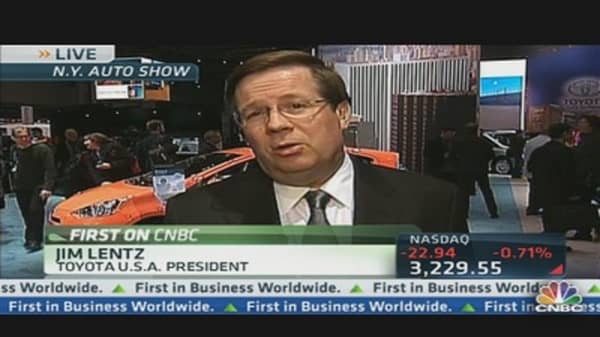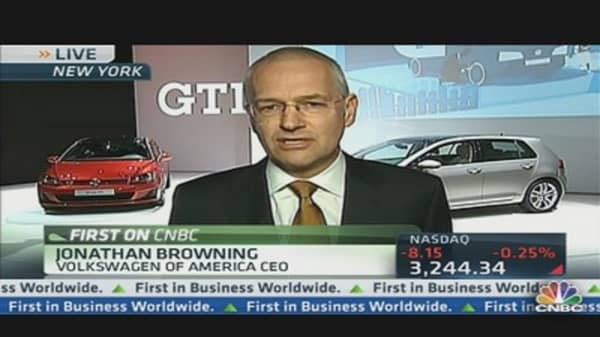Mercedes-Benz is reaching out to young American consumers, offering luxury for less.
A major part of the strategy, said Mercedes-Benz USA President Steve Cannon, will be a "significant" drop in the entry-level prices of Mercedes' AMG brand.
"We are looking to make our brand more accessible to younger buyers, to more buyers, recalibrate the perception of the Mercedes-Benz brand," Cannon told CNBC's "Squawk on the Street" on Wednesday.
He said his company is also rapidly expanding its product offering. "Our product pipeline for the next seven years will have a new car launching every three months. Mercedes-Benz is in the middle of its biggest product offensive in its history," Cannon said at the New York International Auto Show. "Product is really what drives the market."





